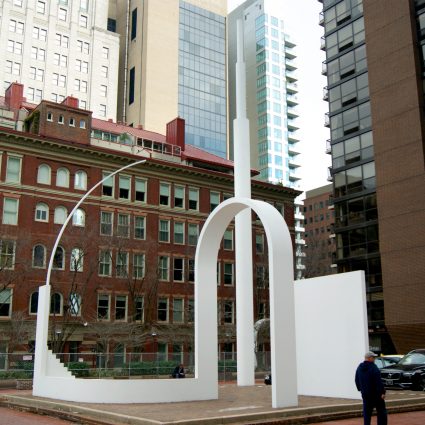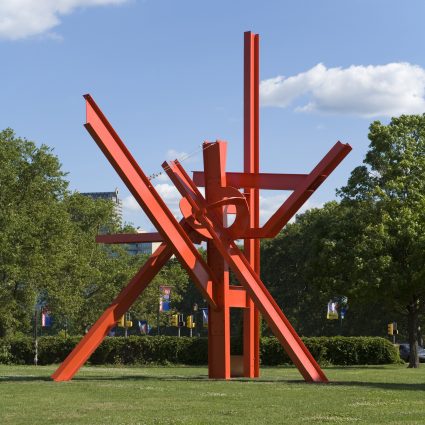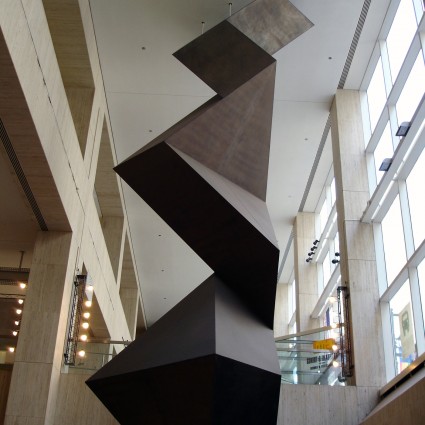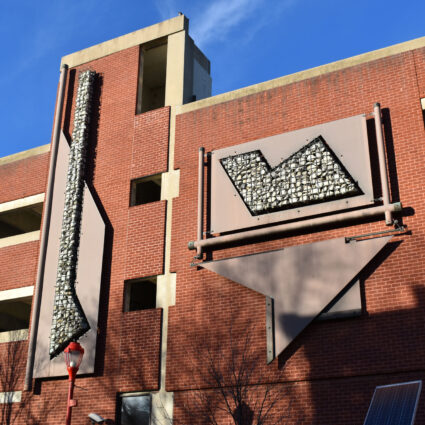Known for his brightly-painted metal sculptures, George Sugarman was a leader in the use of color to emphasize form. He was also among the first to create large-scale sculptures that sat directly on the ground without a pedestal, along with artists Anthony Caro, Donald Judd and Mark di Suvero.
Sugarman’s four Wall Reliefs, set into recesses in the wall of the Jefferson Neurosciences Garage, illustrate the musical and rhythmic nature of his work. The reliefs were commissioned by the Philadelphia Redevelopment Authority’s Percent for Art Program for Wills Eye Hospital (which serves as the Department of Ophthalmology for Thomas Jefferson University Hospital). An additional composition that arched over the hospital’s main entrance and posed an obstacle for visually-impaired patients was placed on loan at Morris Arboretum in 1991.
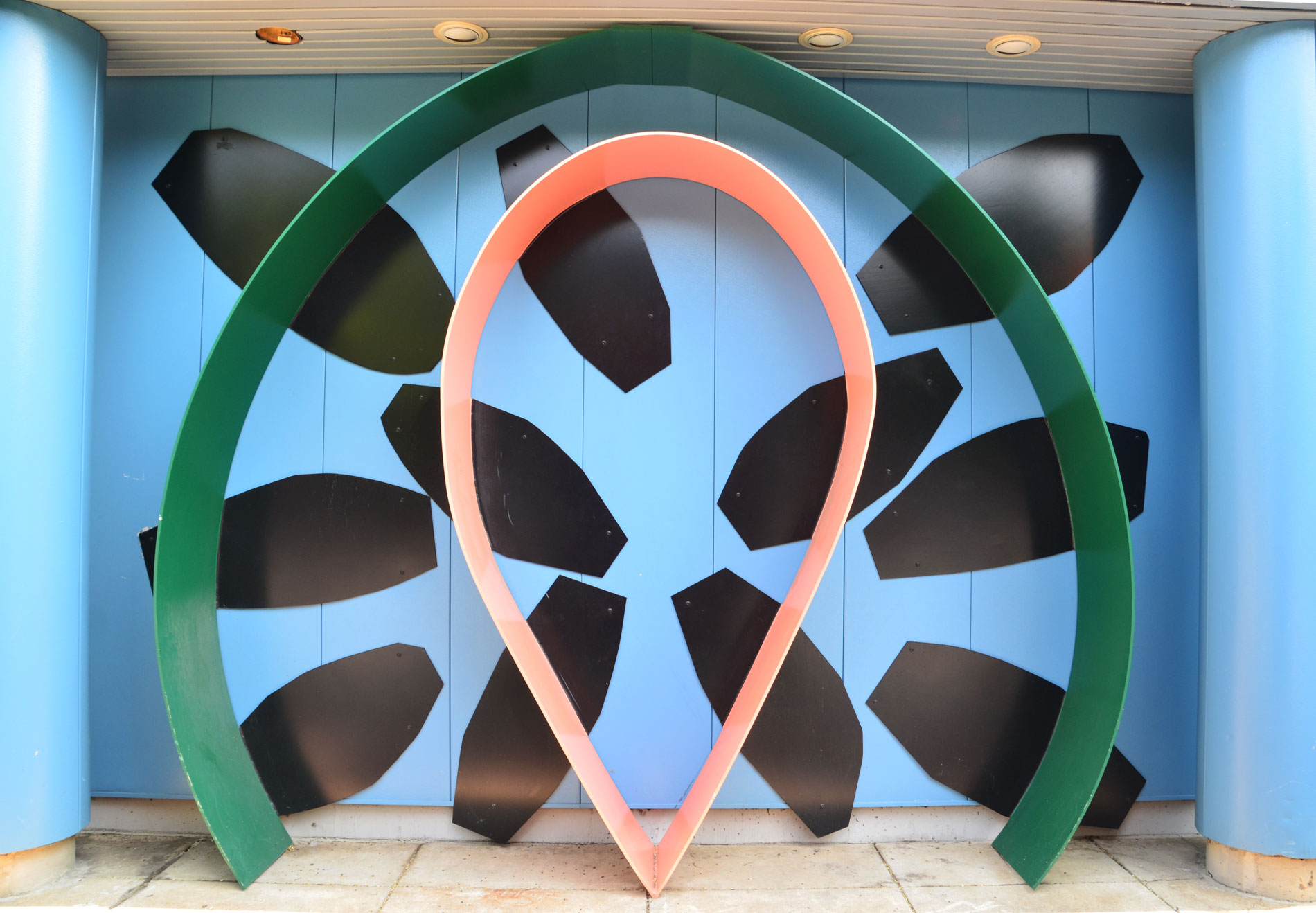
“The profuse colored forms of Mr. Sugarman’s sculptures, which were initially made of painted wood and then of painted aluminum, could seem chaotic at first,” wrote Roberta Smith for the New York Times. “But as the viewer walked around his works, they unfolded in a kind of abstract narrative of color and shape. Their improvisational complexity was out of step with the increasingly minimalist 60’s but was embraced in the 70’s by the Pattern and Decoration artists.”
Born in the Bronx, New York, George Sugarman graduated from City College in New York City, and served in the Navy from 1941 to 1945. On the G.I. Bill, he studied in Paris under the Russian-born French Cubist sculptor Ossip Zadkine in the early 1950s. When Sugarman returned to New York, he joined the Brata Gallery and co-founded the New Sculpture Group, an organization that promoted abstract sculpture. He also taught at Yale University and Hunter College in the 1960s.
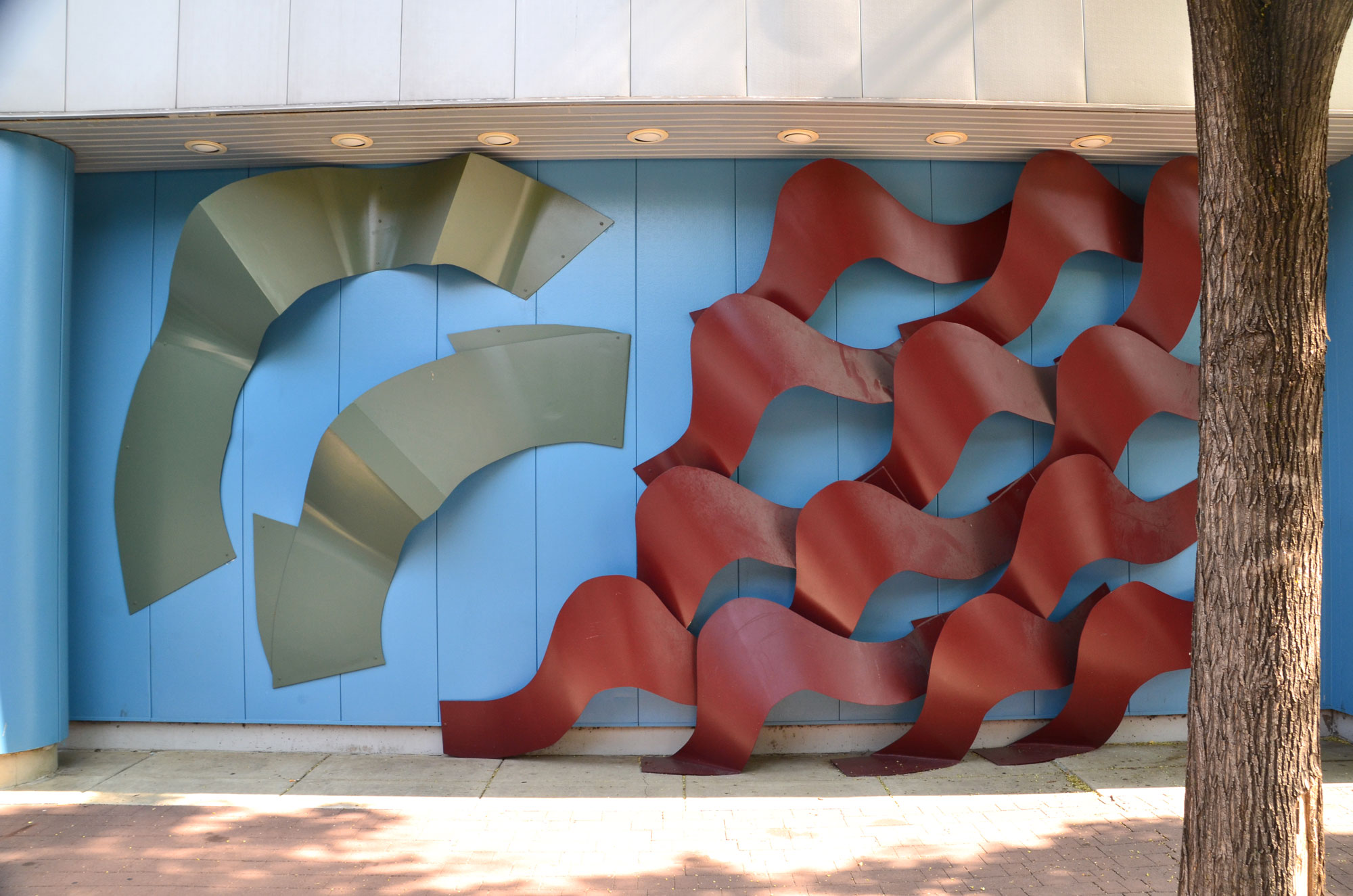
Adapted from Public Art in Philadelphia by Penny Balkin Bach (Temple University Press, Philadelphia, 1992).
RESOURCES:
- Visit the artist’s website
- George Sugarman, a Sculptor Of Colorful Works, Dies at 87 (New York Times Obituary)
Enjoying this content?
Click here to donate and help us continue to tell the story of public art in Philadelphia.
